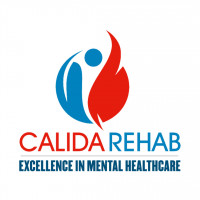Alcohol Detox Myths Debunked: Safety, Withdrawal Symptoms & Need for Medical Supervision

Strong 8k brings an ultra-HD IPTV experience to your living room and your pocket.
Alcohol detox is the initial, medically managed phase of recovery where the body is safely cleared of alcohol. It is designed to manage the often severe and dangerous symptoms of withdrawal in a controlled environment, preventing life-threatening complications and preparing an individual for ongoing therapy.
When it comes to alcohol addiction, the path to recovery is often clouded by a fog of misinformation, especially concerning the first and most critical step: detoxification. Many people, influenced by popular media or simple misunderstanding, believe that stopping drinking is a matter of willpower—a battle to be fought alone in the quiet of one's home. This belief is not just incorrect; it is profoundly dangerous.
At Calida Rehab, a premier centre for Alcohol Addiction Treatment in Pune and Mumbai, we have guided over a thousand patients through the complexities of recovery. As a medico-driven institution, our foundation is built on clinical evidence, patient safety, and psychiatric expertise. We believe that empowering you with the right information is the first step toward healing. This post will debunk the most common and perilous myths about alcohol detox, clarifying the symptoms, explaining the science, and demonstrating why professional medical supervision is not a luxury, but an absolute necessity.
Myth #1: "I Can Just Tough It Out at Home. It's Only a Bad Hangover."
This is perhaps the most widespread and dangerous myth. The idea of quitting "cold turkey" at home is often seen as a sign of strength, but it fundamentally misunderstands the biology of addiction.
The Reality: The Science of Alcohol Withdrawal Syndrome (AWS)
Chronic alcohol consumption acts as a depressant on your central nervous system. To compensate and maintain normal function, your brain chemistry adapts, increasing the production of stimulating neurotransmitters. When you suddenly stop drinking, this chemical production doesn't stop. Your brain, now without the depressive effects of alcohol, is thrown into a state of severe hyperactivity. This isn't a hangover; it's a serious medical condition called Alcohol Withdrawal Syndrome (AWS).
Symptoms of AWS are progressive and can begin within just six hours of the last drink:
Phase 1 (6-12 hours): Shaking hands (tremors), anxiety, headaches, nausea, vomiting, and profuse sweating.
Phase 2 (12-24 hours): The brain's hyperactivity can lead to hallucinations—seeing, hearing, or feeling things that are not there.
Phase 3 (24-72 hours): This stage can bring about withdrawal seizures, which are sudden, uncontrolled electrical disturbances in the brain.
Why 'Toughing It Out' Is a Dangerous Illusion
Attempting to endure these symptoms alone is not a test of willpower. It's an unfair fight against your own brain chemistry. The physical and psychological distress is often so unbearable that relapse becomes almost inevitable, not due to a lack of desire to quit, but due to the overwhelming physical compulsion to stop the pain. This cycle of failed attempts can deepen feelings of shame and hopelessness, making it even harder to seek help in the future.
Myth #2: "The Worst That Can Happen Is I'll Feel Sick for a Few Days."
Many people tragically underestimate the severity of alcohol withdrawal, believing it to be a temporary, albeit unpleasant, illness. The reality is that unsupervised alcohol withdrawal can be fatal.
The Life-Threatening Reality: Delirium Tremens (DTs)
For a significant percentage of individuals, AWS can progress to its most severe form: Delirium Tremens (DTs). This is a medical emergency. According to multiple studies and clinical observations, DTs carry a high mortality rate if not treated in an intensive care setting.
Symptoms of Delirium Tremens Include:
Severe confusion, disorientation, and agitation
Vivid and terrifying hallucinations
Dangerously high fever and racing heart
Extreme fluctuations in blood pressure
Grand mal seizures
A person experiencing DTs at home is in a life-or-death situation. There is no "at-home" remedy for this condition. It requires immediate medical intervention, something that only a professional facility providing Alcohol Addiction Treatment in Pune or Mumbai is equipped to handle.
The Hidden Dangers: Dehydration, Injury, and Worsening Mental Health
Even if withdrawal doesn't progress to DTs, the risks are still severe. Persistent vomiting can lead to life-threatening dehydration and electrolyte imbalances. A sudden seizure can cause falls, leading to head trauma or broken bones. Furthermore, most experts agree that addiction often co-occurs with mental health conditions like depression and anxiety. The intense stress of withdrawal can amplify these underlying issues, leading to panic attacks, profound despair, and an increased risk of self-harm.
Myth #3: "Detox Is the Same Everywhere. A Medical Facility Is Unnecessary."
In India, there is a wide spectrum of rehabilitation facilities, from luxury wellness retreats to more basic centres. This has led to the myth that the core process of detox is the same everywhere and that a medical setup is an optional extra. This could not be further from the truth.
Why Clinical Expertise Matters More Than Amenities
While a comfortable environment is beneficial, it is the clinical and medical infrastructure that ensures a safe detox. A facility that is "medico-driven" and compliant with NABH (National Accreditation Board for Hospitals & Healthcare Providers) guidelines operates under a different standard of care. The presence of an on-site team of psychiatrists, doctors, and 24/7 nursing staff means that your withdrawal is being managed by professionals trained to handle every possible complication. This is the core difference between a wellness experience and a medical necessity.
The Power of Medication-Assisted Treatment (MAT)
A professional medical detox is not about simply observing you while you suffer. It involves Medication-Assisted Treatment (MAT), an evidence-based approach to make withdrawal both safe and manageable. Doctors may use specific medications, such as benzodiazepines or other approved drugs, to calm the overactive nervous system. This scientifically-backed intervention helps to:
Prevent life-threatening seizures and DTs.
Reduce the intensity of anxiety, tremors, and nausea.
Ensure you can rest and begin the healing process.
Significantly increase the likelihood of completing the detox phase.
Attempting detox without MAT is like trying to fix a complex electrical problem with no tools—it's unnecessarily difficult and extremely dangerous.
Myth #4: "Once Detox Is Over, I'm Cured."
Completing detox is a monumental achievement and a vital first step. However, it is a common and dangerous myth to believe that detox equals a cure.
The Truth: Detox Is Only the First Step
Detoxification addresses the physical dependence on alcohol. It breaks the body's immediate need for the substance, allowing you to become medically stable. However, it does not address the underlying
psychological addiction—the thoughts, behaviours, and emotional triggers that led to the substance use in the first place. Most addiction experts agree that without addressing these root causes, relapse is not just possible, but highly probable.
What Comes Next: Building a Foundation for Lasting Recovery
True, lasting recovery begins after detox is complete. This is where the therapeutic work happens. At a comprehensive centre for Alcohol Addiction Treatment in Mumbai or Pune, this involves a multi-faceted approach:
Individual Therapy: One-on-one sessions with a psychologist to explore personal triggers and trauma.
Cognitive Behavioural Therapy (CBT): A proven therapy to identify and change the negative thought patterns that fuel addiction.
Group Therapy: Sharing experiences in a safe, moderated environment to build community and reduce feelings of isolation.
Family Counselling: Healing the family unit, which is often deeply affected by addiction.
Aftercare Planning: Creating a robust plan to manage life's stresses and prevent relapse after leaving the facility.
Fact vs. Fiction: Comparing At-Home Detox with Professional Medical Supervision
To make the choice clear, here is a direct comparison of the myths versus the reality of professional care.
Feature Myth: At-Home Detox Reality: Professional Medical Detox (at Calida Rehab)
Safety "It's safe enough if I'm determined."
Extremely high risk of seizures, DTs, and death. A medical emergency waiting to happen.
Medical Supervision "I don't need a doctor to stop drinking."
24/7 monitoring by psychiatrists, doctors, and nurses to manage symptoms and prevent complications.
Symptom Management "I can just tough out the symptoms."
Evidence-based medications (MAT) are used to make the process safe, comfortable, and manageable.
Emergency Handling "I can call for help if things get bad."
By the time DTs begin, it may be too late. Professional facilities prevent emergencies before they start.
Psychological Support "I just need to be alone to focus."
Isolation worsens underlying anxiety and depression. A professional team provides integrated dual-diagnosis care.
Success Rate "If I fail, it's my fault." Extremely high rate of relapse due to unbearable symptoms. Success is rare.
Your Search for Safe Alcohol Addiction Treatment in Pune and Mumbai Ends Here
The journey away from alcohol addiction is not about shame or punishment; it's about healing and safety. Debunking these myths is crucial because they prevent people from seeking the help they desperately need and deserve. Choosing a facility for alcohol detox is a major decision, and it should be based on facts, not fiction.
At Calida Rehab, we are committed to providing a path to recovery that is grounded in medical science and compassionate care. Our NABH-compliant facilities and expert clinical team ensure that your detox is not something to be feared, but a safe, managed, and dignified first step toward a new life.
Don't let myths dictate your future. Choose safety. Choose expertise. Choose a real chance at lasting recovery. Contact the Calida Rehab admissions team today for a confidential, no-obligation consultation.
Note: IndiBlogHub features both user-submitted and editorial content. We do not verify third-party contributions. Read our Disclaimer and Privacy Policyfor details.



